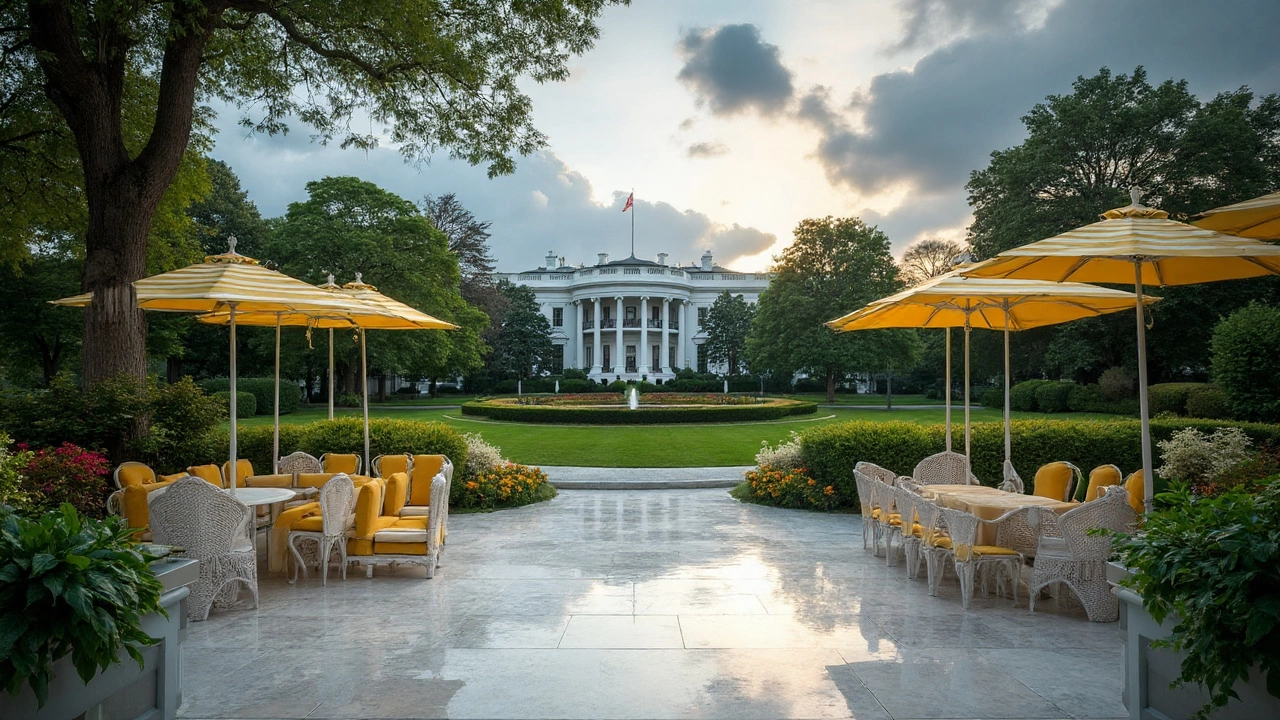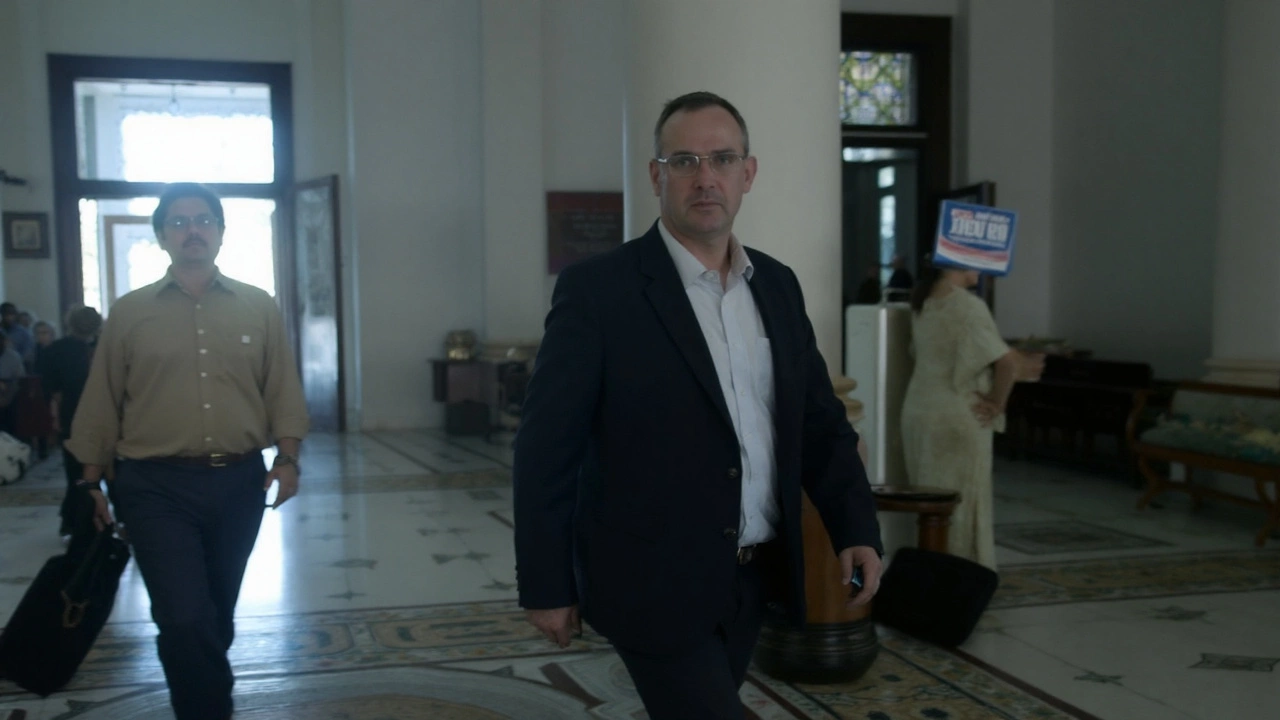Bailey mounts a rematch as Pritzker seeks a third term
Illinois hasn’t seen a governor try for three straight wins since Jim Thompson. Gov. JB Pritzker wants that shot in 2026. And Darren Bailey, the Republican he beat by a wide margin in 2022, wants another crack at him — this time with Cook County Republican Party chairman Aaron Del Mar on the ticket for lieutenant governor.
Bailey has kept himself in the thick of Republican politics since 2022. He stayed close to former President Donald Trump, showed up at rallies, and tried a congressional run this year. That bid came up short against U.S. Rep. Mike Bost, but it kept Bailey’s name in the headlines and his base engaged. Now he’s back, pitching a message built around crime, taxes, and frustration with Democratic leadership in Springfield and Chicago.
Del Mar brings suburban credentials the Bailey campaign didn’t have last time. As the Cook County GOP chair, he talks about uniting conservatives from downstate farm towns to the northwest suburbs. The pitch is simple: bridge the culture and geography gap inside the party, energize grassroots volunteers, and argue that public safety, tax relief, and a friendlier climate for small businesses can turn the page in Illinois.
Pritzker has his own slate in place. He says he’s running again and named former state Rep. Christian Mitchell — a onetime deputy governor and strategist with deep ties in Chicago politics — as his running mate. He’s also brushing off all the presidential chatter, telling allies and voters he’s focused on four more years at the Statehouse.
The last time these two faced off, Pritzker won by double digits. He dominated Chicago and the inner suburbs; Bailey ran up big margins across much of rural Illinois. That map hasn’t changed much, but the fight will: abortion rights, gun policy, and the state’s controversial bail overhaul are now fully baked into the record, and both campaigns will make them central.

A crowded Republican field and the issues at stake
Bailey won’t have the primary to himself. The GOP bench is getting busy, and the field could shift as fundraising and endorsements roll in.
- Businessman Joseph Severino is running, with Rantch Isquith as his running mate.
- Ted Dabrowski, who leads the conservative research group Wirepoints, has entered the race.
- DuPage County Sheriff James Mendrick is in, bringing a law-and-order profile from the suburbs.
- Antioch Mayor Scott Gartner says he’s exploring a run while staying focused on his village job.
This primary will turn on two things: geography and ideology. Can any Republican marry downstate strength with gains in the collar counties, where statewide races are won? And how closely do candidates tie themselves to Trump in a state that leans Democratic in general elections but still rewards conservative messages in rural regions?
Pritzker enters with big advantages: incumbency, name recognition, and the ability to self-fund. He’s also got a record he’ll showcase — budgets that Democrats describe as steadier than a decade ago, an early-term infrastructure program that poured billions into roads, bridges, and transit, a phased-in minimum wage hike, and high-profile laws on abortion access and gun restrictions. Expect him to argue that Illinois is a safe harbor on reproductive rights and that his administration backed gun safety after a string of mass shootings.
Republicans will counter with the daily concerns voters feel. They’ll hammer the cost of living and property taxes, accuse Democrats of going soft on crime, and say the state’s business climate still pushes families and employers out. Bailey has long cast himself as a social conservative who wants lower taxes, fewer regulations, and a tougher posture on public safety. He’s likely to call for changes to the cash bail overhaul and to Illinois gun laws.
Chicago politics will hover over all of it. Mayor Brandon Johnson’s first-term struggles on public safety, schools, and the migrant crisis provide a steady stream of talking points for Republicans trying to link the governor to City Hall. Democrats will fire back that state policies on schools, healthcare, and infrastructure benefit the whole state, not just Chicago.
Here’s what voters can expect to hear again and again as the Illinois governor race heats up:
- Public safety: The statewide end of cash bail is now in effect; candidates will argue over its impact and what to fix next.
- Taxes and affordability: From income and sales taxes to property taxes, both sides will pitch relief, with different paths to get there.
- Schools: Culture-war fights over curriculum and parental rights will collide with funding and test-score trends.
- Immigration and cities: Migrant arrivals to Chicago stress budgets and services; state support and local coordination will be flashpoints.
- Pensions and debt: The long-term math still looms; expect competing plans on restructuring, payments, and growth.
Timing matters. The primary is months away, and formal filing won’t begin until later in 2025. That leaves a long runway for fundraising, endorsements, and potential surprises. Watch who lines up county party support, who can build volunteer armies in the suburbs, and whether any candidate can break through beyond their base.
Demographics will shape the map. The collar counties remain the battleground, with voters who split tickets and care about schools, taxes, and commute times. Downstate Republicans deliver big margins, but they need suburban gains to win statewide. Democrats rely on heavy turnout in Chicago and strong showings among suburban moderates; any erosion there would be a warning sign.
The governing records and promises are clear enough. Pritzker will run as a steady hand who leaned into social policy and big public works while pitching stable finances. Bailey and fellow Republicans will argue the state needs a reset: leaner government, a sharper focus on crime, and a break with Chicago-centric priorities. How those cases land — and who survives the GOP primary — will decide whether 2026 is a rerun of 2022 or a very different race.
